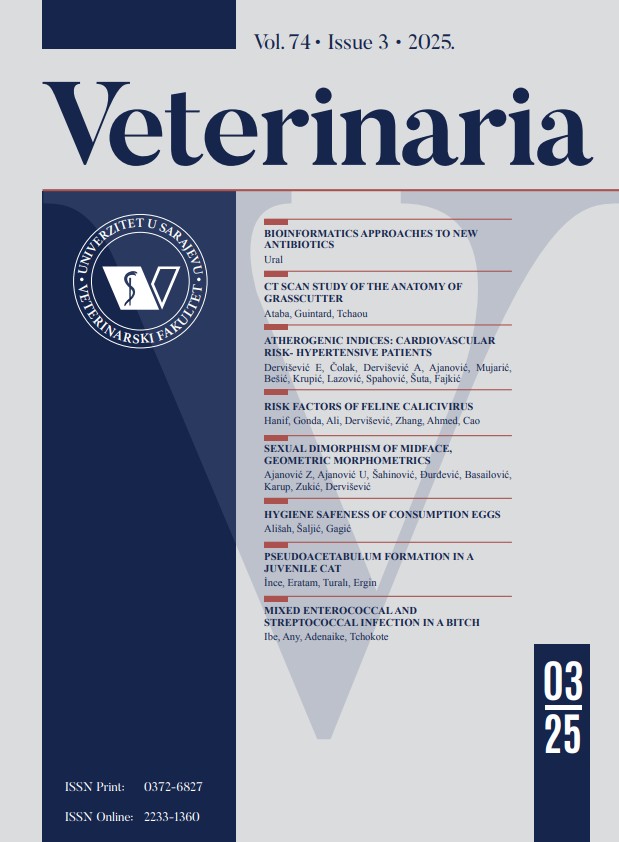Anthelmintics efficacy against intestinal strongyles in foals
Keywords:
foals, anthelmintics, efficacy, strongyles, resistanceAbstract
Intestinal strongyles (IS) of horses have a primary importance in equine medicine, for their worldwide distribution, impact on health and performance of infected animals and the spread of drug-resistant populations. Therefore the aim of the present study was to provide information on the efficacy of the most commonly used anthelmintics against intestinal strongyles in a foal’s population in Tiaret, Algeria. A total of 84 foals from Chaouchaoua stud farm were treated with three fenbendazole formulations, oxfenbendazole and ivermectin at their recommended dosages. Fecal egg count reduction testing (FECRT) was used to determine the efficacy of each anthelmintic. Decreased efficacy (reduction of strongyle-type fecal egg counts by less than 90%) was found for the threefenbendazole formulations (varying from 14.26% to 18.99%) and for oxfenbendazole with only 50.03%. Ivermectin show maximum efficacy (100%) in all horses sampled in this study. Findings from this study can be used to create a more sustainable approach for parasite control programs.
Downloads
Published
How to Cite
Issue
Section
License
Copyright (c) 2020 VETERINARIA

This work is licensed under a Creative Commons Attribution 4.0 International License.








